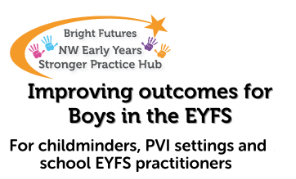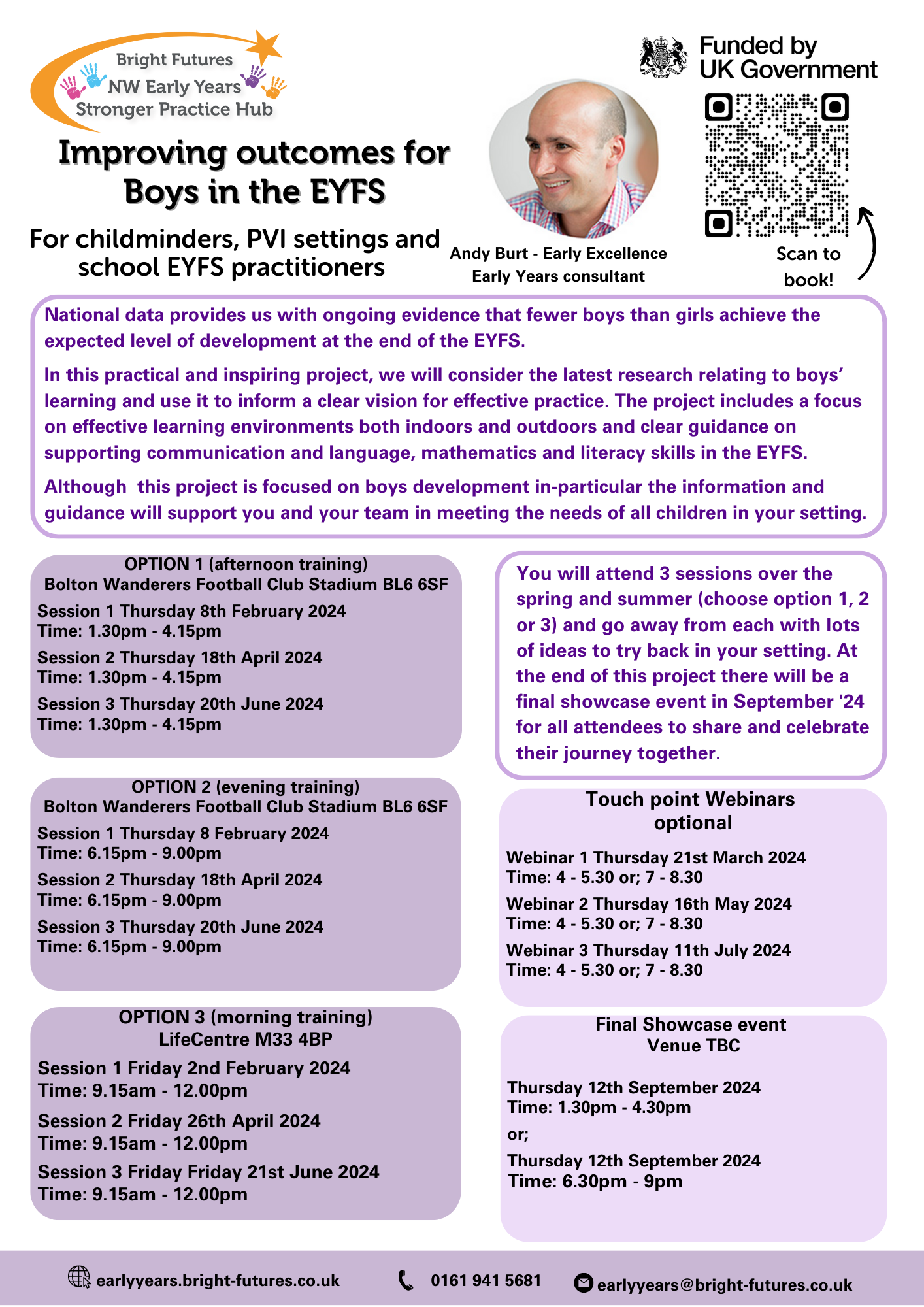Improving outcomes for Boys in the EYFS

Improving outcomes for Boys in the EYFS: Training for Childminders, PVI settings and School EYFS Practitioners.

Improving Outcomes for Boys in the EYFS
Aims
- To explore national data relating to the attainment gap between boys and girls in the EYFS
- To consider key research relating to boys’ attainment.
- To reflect on the vital importance of both the Characteristics of Effective Learning and The Prime Areas of Learning in the EYFS.
- To explore how well-planned indoor and outdoor learning environments can create rich contexts for boys’ learning.
- To provide key guidance on how to support boys’ communication and language, literacy and mathematical skills.
Overview of the Project
Training
Spring face-to-face – ½ day (repeated 3x)
Summer 1 face-to-face – ½ day (repeated 3x)
Summer 2 face-to-face -1/2
Touch Point Webinars
2 x touch point webinars per term
One for childminders, one for PVI/schools (6.30pm – 8pm)
Final Event – Autumn 2023
Full day event - including training input and a structured opportunity to share practice -
Consultancy Visits
6x consultancy visits pr term (2 per day, 3 days in total each term)
Autumn Term- Half Day Training
Developing an Effective Learning Environment
- We will begin by using the EYFS Profile data from 2021/22 and will explore the statistic that “Over 7 in 10 girls had a good level of development compared top fewer than 6 in 10 boys”. We will explore the data relating to the prime areas of learning which make up this statistic.
- We will use historical EYFS Profile data to show how this gender gap within the EYFS has remained constant.
- 2023 profile data should be available in November 2023, so this can be included
- Key research (CREC HAWWCB Project, funded by the DfE) will be used to explore what makes the difference for young boys as learners.
- Exploring how young children learn. In this section we will consider learning over time and how learning is embedded. We explore The Characteristics of Effective Teaching and Learning and how these characteristics can be used to support/develop practice.
- We will explore how a rich, well -planned learning environment can support the children to develop effectively as learners. As part of this we will consider organisation of resources and effective planning.
- Time to Reflect. We will provide delegates with audit tools which can be used to reflect on the effectiveness of current practice and pinpoint where changes need to be made.
- Gap Tasks- Delegates will be provided with a series of gap task activities to carry out with their team. We will provide audit tools and examples of continuous provision planning to support delegates as they develop their practice.
Spring Term-Half Day Training
The Prime Areas of Learning
- We will consider how the prime areas of learning underpin learning and development across all areas. We will look closely at key aspects of practice within the prime areas which can be improved in order to support boys’ learning and development.
- We will explore how a well-planned outdoor space can support the development of The Prime Areas of Learning. This will include a focus on the importance of outdoor learning and how to plan for a range of rich learning experiences outdoors.
- As part of this session, we will consider the links between physical and cognitive development.
- Time to Reflect. We will provide delegates with audit tools which can be used to reflect on the effectiveness of current practice and pinpoint where changes need to be made.
- Gap tasks- Delegates will be given a range of suggested gap tasks to complete with their team following the training. Activities will focus on the key areas discussed within the training.
Summer Term-Half Day Training
Securing Effective Interactions
- In this session we will focus on the role of the adult within effective EYFS practice.
- We will explore how adults build effective learning relationships with children and how this forms the foundation for effective learning conversations.
- We will consider key strategies to secure effective interactions including a focus on modelling, engaging, use of language, questioning and extending thinking.
- Video clips will be used to prompt conversations with delegates regarding effective strategies and also to consider possible barriers to high quality adult interactions.
- We will explore the importance of regular opportunities for sustained shared thinking and consider what this might look like in practice.
- Gap Tasks- A series of suggested gap tasks will be provided to support delegates in identifying areas for development as part of their practice.
Final Day
- This session will include key areas for development as identified as part of the consultancy visits.
- We will consider sustainability, and how schools/settings can continue to take things forward
- An opportunity will be given for schools, settings, and childminders to share how their practice has developed as part of the project and the impact of their work.
Touch Point Webinars
- These will pick up on key issues arising from the half day training each term, with a training element on a relevant these, as well as the opportunity for practitioners to discuss their issues, barriers – and successes!
Evidence Base and Data
- EYFS Profile data from 2021/22
- EYFS Profile statistics 2021-22-Differences in GLD by Characteristics (gender)
- Effective Pre School, Primary and Secondary Education Project (EPPSE Project) 2014 DfE Kathy Sylva, Edward Melhuish, Iram Siraj et al.
- High Achieving White Working Class Boys Project (CREC and DfE) 2016 Chris Pascal and Tony Bertram
- Statutory Framework for the Early Years Foundation Stage March 2021
- Development Matters DfE 2020
- Education Endowment Foundation, The ShREC Approach
